Bio - Excretory System
5.0(1)
Card Sorting
1/30
Last updated 3:40 PM on 5/3/23
Name | Mastery | Learn | Test | Matching | Spaced | Call with Kai |
|---|
No analytics yet
Send a link to your students to track their progress
31 Terms
1
New cards
What is excretion?
removal of metabolic wastes
2
New cards
What is osmoregulation and why is it necessary?
It controls the water content of blood and how much is urinated. If this goes wrong cells can lyse (pop) or shrivel up.
3
New cards
what is excreted in the excretory system
CO2, Water, Urea, Ammonia, and Salts (Minerals)
4
New cards
organs of the excretory system
Lungs, Liver, Sweat Glands, and kidneys
5
New cards
Where is osmoregulation?
The medula of the kidney
6
New cards
What is filtered to make urine?
Blood is filtered
7
New cards
filtering unit of the kidneys?
The nephron is the tiny filtering unit
8
New cards
Bowmans Capsule
Double walled cup structure
9
New cards
Glomerus
cluster of blood capillaries
10
New cards
What does the glomerus do?
It filters blood
11
New cards
proximal convoluted tubule
most reabsorption and secretion
12
New cards
Loop of Henle
(in medulla) tubule empties filtrate into a collecting duct, water reabsorption
13
New cards
Distal Convoluted Tubule
Filtrate fine tuning
14
New cards
Collecting Duct
Final water reabsorption - controlled by ADH
15
New cards
What hormone controls the collecting duct?
ADH
16
New cards
Where is ADH from?
The pituitary gland
17
New cards
What does the kidney do?
produces urine
18
New cards
What do the ureters do?
Transports urine from kidneys to bladder
19
New cards
What does the bladder do?
Stores urine
20
New cards
Urethra
passes urine to outside
21
New cards
Kidney Stones cause
severe dehydration which causes buildup of minerals
22
New cards
Cirrhosis cause
excessive intake of alcohol
23
New cards
Cirrhosis effects
loss of liver cell function
24
New cards
Bladder Infection
infection of the urinary tract which causes a burning sensation when peeing
25
New cards
Dialysis
artificial filtration of blood
26
New cards
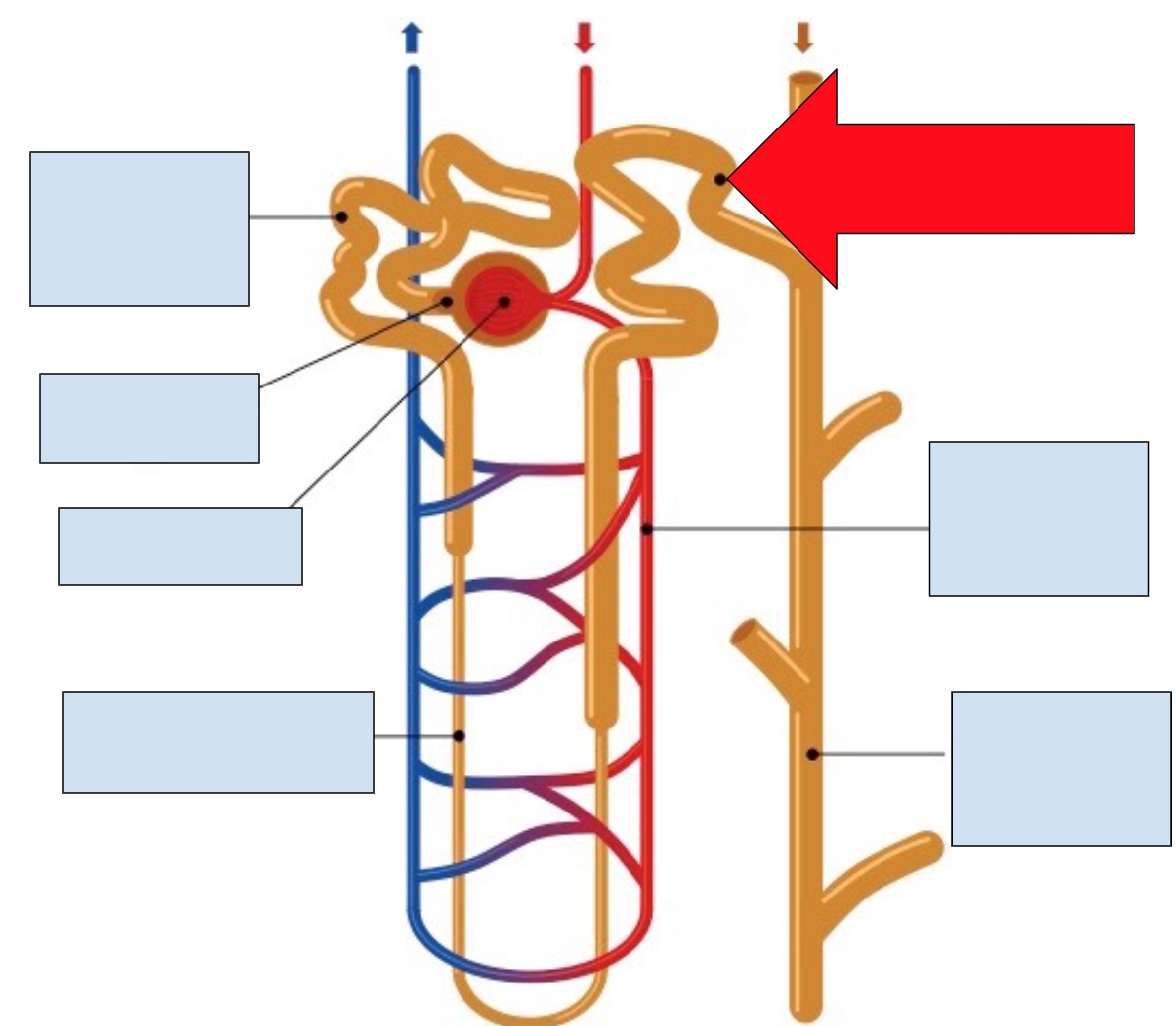
Distal Convoluted Tubule
27
New cards
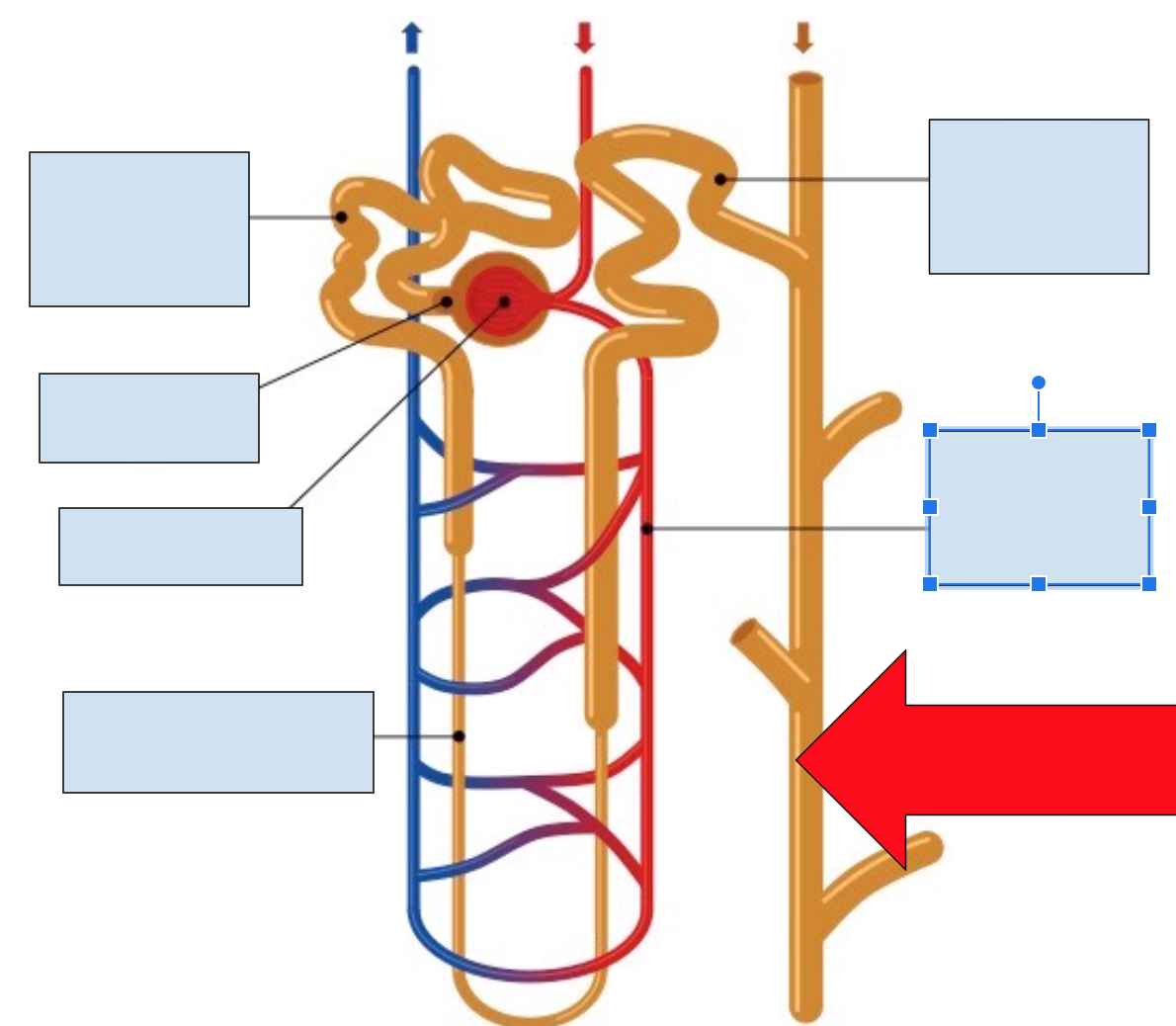
Collecting Duct
28
New cards
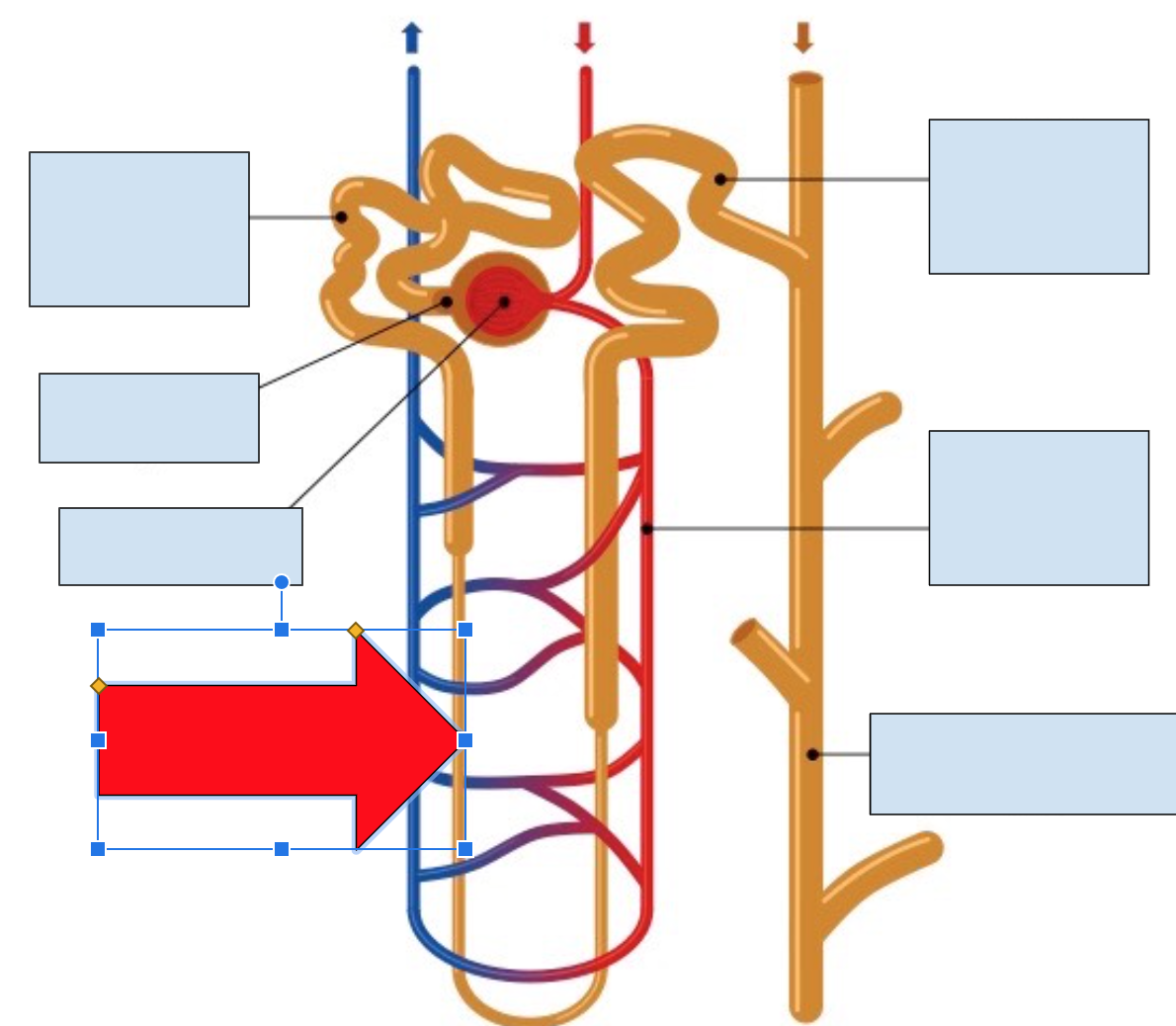
Loop of Henle
29
New cards
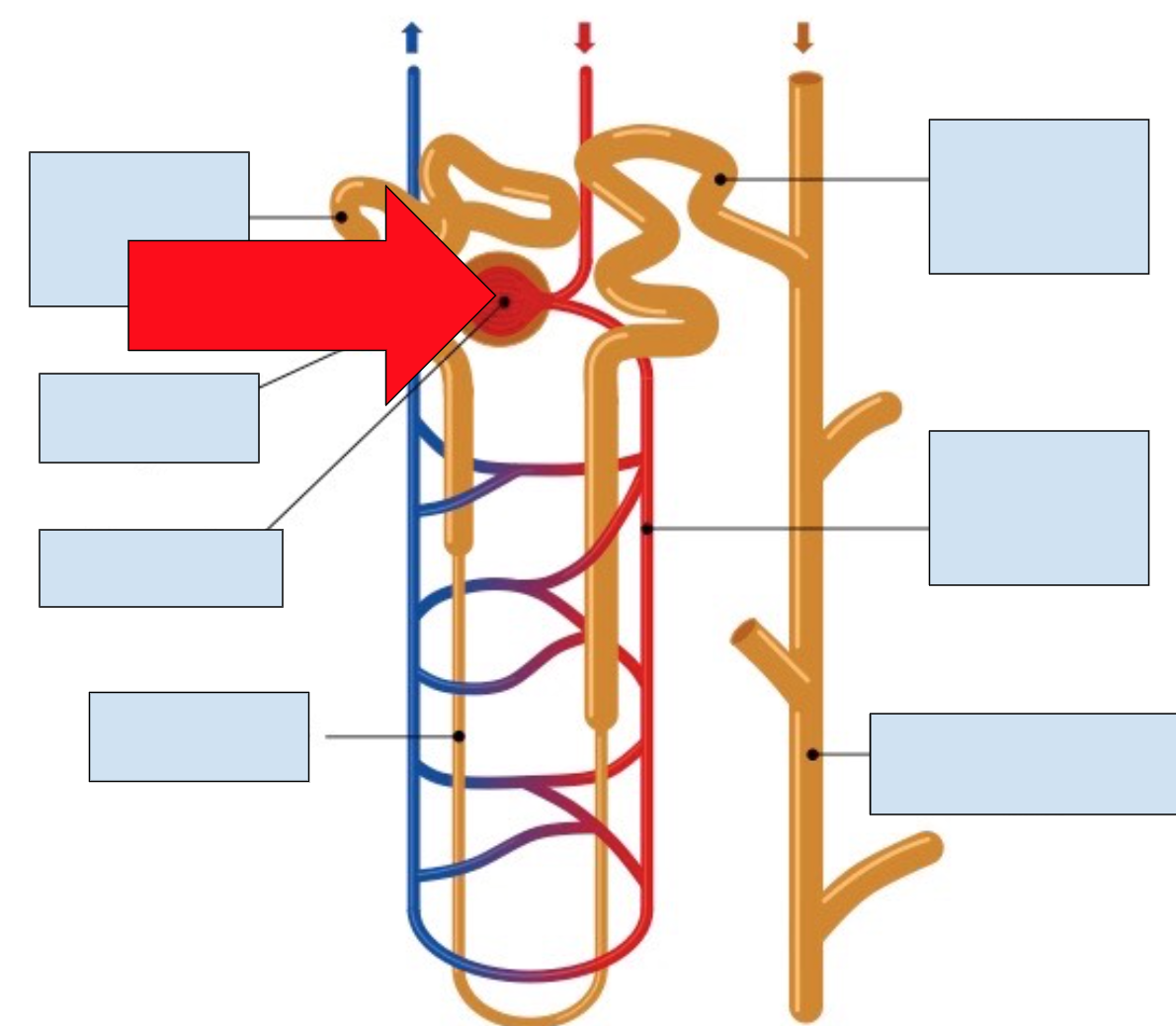
Glomerus
30
New cards
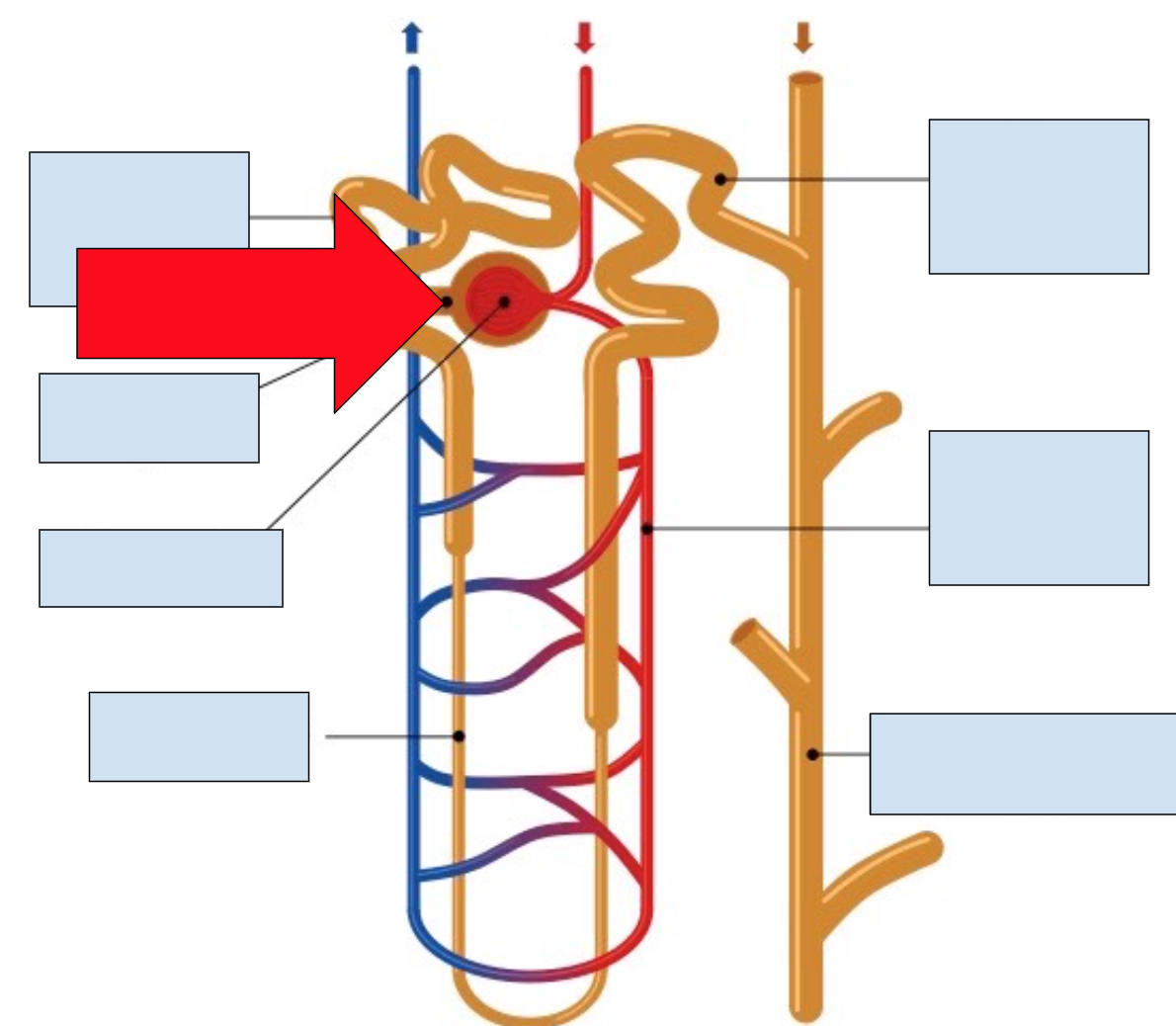
Bowmans Capsule
31
New cards
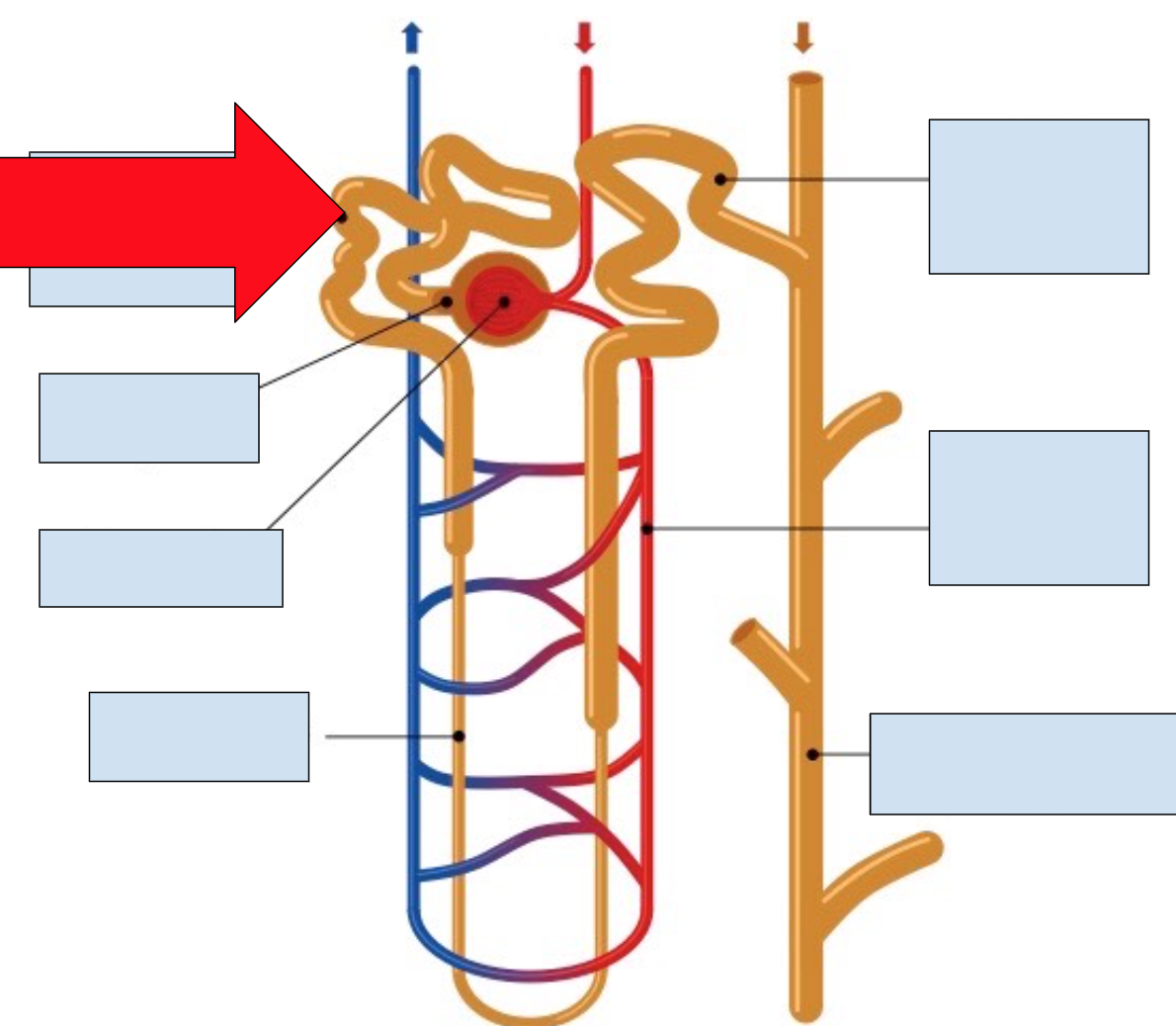
Proximal Convoluted Tubule